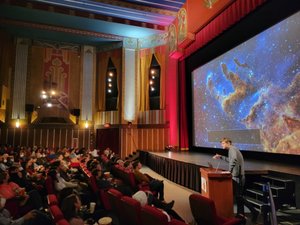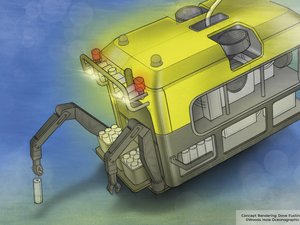When toxic work culture manifests at a fast-growing company like Uber, how should the board react? While Uber CEO and co-founder Travis Kalanick has likely protected himself from being easily ousted by holding a majority of the company's voting shares, other bad-behaving CEOs might not be so lucky.
In the case of Larry Bohn, a managing director at Cambridge venture capital firm General Catalyst, he's had to deal with company executives in similar situations and has even had a hand in ousting a few. He won't say who, but it's part of his job, not just as an investor but also as a board member for a number of fast-growing tech companies in Boston and elsewhere.
Bohn has not always been in a position of making such powerful decisions. Before getting his Bachelor's in English at the University of Massachusetts Amherst, Bohn held many jobs, including delivering groceries, working on a farm, managing a pool hall and driving a taxi. After getting his Master's in English Linguistics and teaching composition and literature at a junior college, Bohn would eventually go on to get his first job in tech at Data General.
Bohn is now an investor and board member for several tech companies, big and large. One of his more notable board seats is at HubSpot, the Cambridge marketing tech company that went public in 2014. Other portfolio companies include NewStore, the ecommerce startup created by Demandware founder Stephan Schambach, and Semantic Machines, which is building conversational artificial intelligence systems for large enterprises — or, as Bohh puts it, "all the big players." Bohn most recently led a Series A investment for OM1, which is using machine learning algorithms to predict healthcare outcomes.
I sat down with Bohn a couple of months ago, and we discussed many subjects, including what role a board member should play in case a portfolio company's culture becomes toxic and what roles government and industry should play in retraining workers whose jobs are displaced by robots and AI. We also talked about President Trump, who Bohn doesn't like.
The interview has been edited for clarity and brevity.
On maintaining a healthy work culture and firing bad CEOs
How should a fast-growing company maintain a healthy work culture?
Bohn: It's a balance, and I would say we try and back ... someone who, No. 1, has what I call "over-the-horizon radar" — they can see the future, they can see where technology is going. No. 2, can they build a team? Because you need someone who's magnetic and can build a team and a big part of that is what kind of culture they can build? You want to back people who you feel like can build a really strong enduring culture and look, there are people who have an authoritarian mentality: Those are very difficult people to back, because you know they're going to kick down and kiss up. That's just a bad sort of environment.
A big part of what we do is like entrepreneur-founder selection and that's not to say someone like [Uber CEO Travis Kalanick] who is an amazing entrepreneur, but the culture that he developed is quite aggressive and that can cascade. I mean, if someone at the top — look at someone like Trump — I mean, it just filters down, it gives permission to things.
Behavior-wise?
Yeah. [...] I think there's a direct correlation between a healthy, optimistic vibrant collaborative culture and success at business. I really do. I think it's so clear.
Have you ever had a portfolio company that has had culture issues?
I personally have very direct experience where you back someone [and] you find out that they're really brutal people in terms of the ways they manage and, you know, [you] move 'em out.
Replacing leadership?
Absolutely. It happens fairly routinely. I would say most of the time when you're a CEO, when there's a CEO change, it probably more often has to do with the person [not having enough] experience to get to the next level. But sometimes it's because there's too much bad stuff happening at a company and I've directly had that experience.
On retraining workers displaced by automation
One big question people are asking and people are trying to answer is what do you do with all of the labor that is being displaced by AI and automation. Is there an answer?
Bohn: The problem with the country is there's not much of a macro approach to it through retraining. What's interesting is the tech industry has like hundreds of thousands of needed jobs: javascript programmers, designers, etc. The rest of the country has lots of displaced workers. You're not going to retrain a coal miner to be a java programmer, but governments need to wake up and realize that it's a social problem, both from an education standpoint to a retraining and incentives standpoint. You sort of have to do it at this point because technology and globalization [are] pretty ferocious in terms of disrupting certain kinds of industries.
But what happens is you go from physical and labor skills to much more mental and domain skills. It is a training issue. So you know, traditionally that's where junior colleges came in and trade schools, but it just hasn't caught up.
Should government have the responsibility or is there room for industry to be involved too?
I'll give you an example. There's a lot of companies and startups in the tech education space now where people go pay to learn big data — how to become a data scientist — but it's pretty expensive. So I think there's a role for industry and there's an opportunity for industry, but I don't think it's really enough. I think at the end of the day, I'm not a big communist or socialist, but I will say it is a role of government. If you look at like what Germany does, what other countries do in terms of labor force planning, you know BMW isn't going to run out of [jobs] to build cars and even autonomous vehicles.
On the challenges for autonomous vehicles
Why do you think autonomous vehicles are going to take a little longer?
Bohn: I think they will suffer early on from headline risk, which we've seen already. People dying, the stuff doesn't work. I think that's one issue. The second is [while] autonomous vehicles can ride on most highways, cities are brutal. There's a team that we looked at out of MIT that got funded and funded very well. They will say it may be 10 to 20 years out before real city autonomous vehicles [take off] because of things like potholes and bikes. There's just so much incidental and unpredictable motion and variants. You worry that it will take a while for both government regulation, which is going to be really important, as well as the technology, to catch up. What I usually tell people is, for the past 20 years, you don't need pilots to fly planes, but would you get into a plane without a pilot?
On Trump and immigration issues
I know you said earlier you didn't want to get political, just gonna ask it anyway...
Bohn: Go ahead, I hate Trump, is that what you wanted to know? I think he's an embarrassment, it's just so disheartening. There's been three benefits in the Trump administration. One is he's rekindled the protest movement, which I was part of in the 60's. Second is he's reinvigorated Saturday Night Light. And third is he's improved my listening to classical music because I won't listen to the news anymore. It's like I don't want to listen to the news, it's just — it's all bad all the time.
Have any of your portfolio companies been impacted by the changing policy landscape for immigration?
We have a [New York-based ] company that, when the first thing about [Trump restricting H-1B visas] started, contemplated moving their headquarters to Canada because they have Canadian operations and... they have a lot of foreign workers.
It's a real issue. I would say all of our companies have people on H-1Bs because, especially from India, some in Europe. NewStore, more than half the people are in Germany. So this is a very real — it's a chilling — it's also just so fucking stupid. I mean, when you think about the whole country is based on immigrants struggling, [sending] their kids to college, [doing] better than their parents. It's not like we back a lot of Protestant white guys from Concord. Most of the people we back are kids of immigrants or immigrants themselves, so it's, like, I'm disheartened.
But, you know, it's a strong country and we'll survive. It'll be bumpy. And honestly, I'm not afraid to say it because I think that it's so clear. It's just so clear this guy has no business being in office and everyone's hoping that he's somehow going to instantly turn presidential. A certain rule I follow: when you're over 50, you're not going to change, right? He's way over 50 and he's really not going to change.








